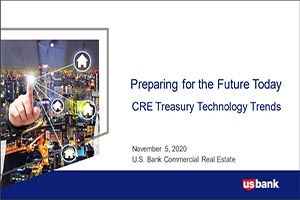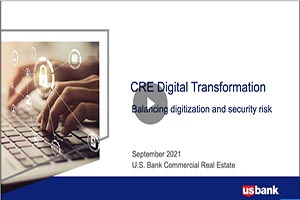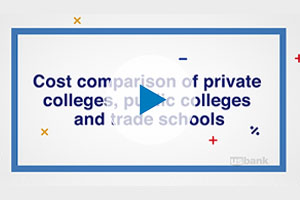
Empowering team members

How to start investing: A beginner’s guide

Preparing for retirement: 8 steps to take

What is Medicare? Understanding your coverage options

Do I need a financial advisor?

Retirement savings by age

7 financial questions to consider when changing jobs

How a Health Savings Account (HSA) can benefit your retirement plan

Should I itemize my taxes?

5 tips for creating (and sticking to) a holiday budget

Investment strategies by age

Evaluating interest rate risk creating risk management strategy

6 things to know about long-term care insurance cost and benefits

Military homeownership: Your guide to resources, financing and more

How to plan and save for adoption and in vitro fertility treatment costs

Employee benefit plan management: trustee vs. custodian

Car shopping: Buying versus leasing your next vehicle

For today's homebuyers, time and money are everything

How I did it: Bought a home without a 20 percent down payment

Money Moments: Tips for selling your home

5 tips for being a great board member

How I did it: Joined a board of directors

What financial advice would you give your younger self?

10 ways to increase your home’s curb appeal

Webinar: CRE technology trends

What you should know about buying a car

5 things to avoid that can devalue your home

9 simple ways to save

Here’s how to create a budget for yourself

Real world advice: How parents are teaching their kids about money

Money Moments: How to manage your finances after a divorce

Helpful tips for safe and smart charitable giving

Money Moments: 8 dos and don’ts for saving money in your 30s

Travel for less: Smart (not cheap) ways to spend less on your next trip

Understanding guardianship and power of attorney in banking

What’s in your emergency fund?

What you need to know about renting

From LLC to S-corp: Choosing a small business entity

6 tips for trust fund distribution to beneficiaries

How to build wealth at any age

How to manage your money: 7 tips to improve your finances

LGBTQ+ financial planning tips

Your 5-step guide to financial planning

5 financial goals for the new year

Annual insurance policy review checklist

How I did it: Turned my side hustle into a full-time job

Retirement plan options for the self-employed

5 reasons why couples may have separate bank accounts

It's possible: 7 tips for breaking the spending cycle

Closing on a house checklist for buyers

Multiple accounts can make it easier to follow a monthly budget

Is it time to get a shared bank account with your partner?

Don’t underestimate the importance of balancing your checking account

7 steps to keep your personal and business finances separate

Which is better: Combining bank accounts before marriage — or after?

30-day adulting challenge: Financial wellness tasks to complete in a month

Estate planning checklist: 8 steps to secure your legacy

8 steps to choosing a health insurance plan

Key milestone ages as you near and start retirement

High-yield bond issuance: 5 traits lawyers should look for in a service provider

How I did it: Switched career paths by taking an unexpected pivot

Estate planning documents: Living trusts vs. will vs. living will

Why estate planning is important

Year-end financial checklist

Trends in economics, immigration and mobility policy

Putting home ownership within reach for a diverse workforce

Administrator accountability: 5 questions to evaluate outsourcing risks

Finance or operating lease? Deciphering the legalese of equipment finance

Buying or leasing? Questions to ask before signing a contract

Easier onboarding: What to look for in an administrator

Insource or outsource? 10 considerations

The secret to successful service provider integration

4 questions you should ask about your custodian

Refining your search for an insurance custodian

Service provider due diligence and selection best practices

Complying with changes in fund regulations

Business risk management for owners of small companies

Evaluating interest rate risk creating risk management strategy

Webinar: CSM corporation re-thinks AP

Webinar: AP automation for commercial real estate

Addressing financial uncertainty in international business

Safeguarding the payment experience through contactless

COVID-19 safety recommendations: Are you ready to reopen?

5 winning strategies for managing liquidity in volatile times

The surprising truth about corporate cards

The future of financial leadership: More strategy, fewer spreadsheets

Unexpected cost savings may be hiding in your payment strategy

Choosing your M&A escrow partner

Tapping into indirect compensation to recruit foreign talent

Why other lenders may be reaching out to your employees

High-cost housing and down payment options in relocation

Why retail merchandise returns will be a differentiator in 2022

Work flexibility crucial as municipalities return to office

Overcoming the 3 key challenges of a lump sum relocation program

Crypto + Relo: Mobility industry impacts

For today's relocating home buyers, time and money are everything

Webinar: CRE Digital Transformation – Balancing Digitization with cybersecurity risk

How to sell your business without emotions getting in the way

5 steps to take before transitioning your business

10 tips on how to run a successful family business

Talent acquisition 101: Building a small business dream team

Costs to consider when starting a business

How to test new business ideas

The role of ethics in the hiring process

8 ways to increase employee engagement

The costs of hiring a new employee

How to hire employees: Employee referral vs. external hiring

Give a prepaid rewards card for employee recognition

Checklist: Increase lead generation with website optimization

Is your restaurant Google-friendly?

How to expand your business: Does a new location make sense?

3 simple brand awareness tips for your business

How a small business owner is making the workplace work for women

5 principles for avoiding ethics pitfalls on social media

5 tips for helping employees raise ethics concerns

The growing importance of a strong corporate culture

7 uncommon recruiting strategies that you may not have tried yet

Business credit card 101

Meet your business credit card support team

How to apply for a business credit card

How jumbo loans can help home buyers and your builder business

Break free from cash flow management constraints

5 tips for managing your business cash flow

Improve online presence your business

How Shampoo’ed is transforming hair and inspiring entrepreneurs

The San Francisco bridal shop that’s been making memories for 30 years

How Al’s Breakfast is bringing people together

In a digital world, Liberty Puzzles embraces true connection

Celebrity Cake Studio’s two decades of growth and success

How a travel clothing retailer is staying true to its brand values

How to build a content team

Use this one simple email marketing tip to increase your reach

Multigenerational household financial planning strategies

How to track expenses

How to manage your finances when you're self-employed

Good debt vs. bad debt: Know the difference

Reviewing your beneficiaries: A 5-step guide

How to talk about money with your family

Financial steps to take after the death of a spouse

Retirement advice: How to retire happy

Retirement income planning: 4 steps to take

Preparing for retirement: 8 steps to take

How I did it: Transitioned from the military to a private sector career

Working after retirement: Factors to consider

4 steps to finding a charity to support

Year end tax planning tips

Tips for navigating a medical hardship when you’re unable to work

11 essential things to do before baby comes

Checklist: 10 questions to ask your home inspector

What you need to know as the executor of an estate

What documents do you need after a loved one dies?

How I did it: Paid off student loans

Bank Notes: College cost comparison

How you can prevent identity theft

Uncover the cost: Wedding

Uncover the cost: International trip

Tips to overcome three common savings hurdles

Adulting 101: How to make a budget plan

Personal loans first-timer's guide: 7 questions to ask

How can I help my student manage money?

Do you and your fiancé have compatible financial goals?

U.S. Bank asks: Transitioning out of college life? What’s next?

U.S. Bank asks: Do you know your finances?

Personal finance for teens can empower your child

How to save for a wedding

Dear Money Mentor: How do I set and track financial goals?

Lost job finance tips: What to do when you lose your job

Money Moments: 3 smart financial strategies when caring for aging parents

Money management guide to financial independence

5 tips to use your credit card wisely and steer clear of debt

How to stop living paycheck to paycheck post-pay increase

Practical money tips we've learned from our dads

6 ways to spring clean your finances and save money year-round

How to cut mindless spending: real tips from real people

How grandparents can contribute to college funds instead of buying gifts

How to open and invest in a 529 plan

Using 529 plans for K-12 tuition

Parent checklist: Preparing for college

What to consider before taking out a student loan

5 tips to use your credit card wisely and steer clear of debt

How to use debt to build wealth

Crypto + Homebuying: Impacts on the real estate market

House Hacks: How buying an investment property worked as my first home

Managing the impacts of appraisal gaps in a hot housing market

Your guide to breaking the rental cycle

4 ways to free up your budget (and your life) with a smaller home

Beyond the mortgage: Other costs for homeowners

10 questions to ask when hiring a contractor

5 unique ways to take your credit card benefits further

